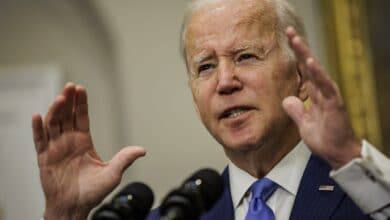Abe warns China an attack on Taiwan would be ‘economic suicide’

Tokyo, Dec 1 (EFE).- Any military action by China against Taiwan would pull in Japan and ally the United States, and would constitute “economic suicide” for Beijing, Japan’s former prime minister Shinzo Abe warned on Wednesday.
Abe spoke on this hypothetical scenario in the context of growing tensions in the Taiwan Strait, during a virtual forum organized by the Taiwanese Institute for National Policy Research think tank.
“A Taiwan emergency is a Japanese emergency, and [therefore] an emergency for the Japan-US alliance. President Xi Jinping should never misunderstand this point,” Abe said during his speech at the forum, according to national broadcaster NHK.
Japan, Taiwan and all those that believe in democracy need to continue to appeal to Xi and the Chinese Communist Party to not take the wrong path, said Abe, who was the longest-serving prime minister in the history of Japan and still considered one of the most influential figures within the ruling Liberal Democratic Party.
“A military adventure is the way to economic suicide” for China and “would have a significant impact on the world economy,” said the former Conservative leader, who left office for health reasons in September last year and who remains a deputy of the Lower House.
Abe also noted that the Senkaku Islands, administered by Tokyo but claimed by Beijing (which calls them Diaoyu), as well as other remote islands in the southwest of the Japanese archipelago are located just 100 kilometers or so from Taiwan.
Japan has a bilateral defense treaty with the US, which in turn has some of its largest military bases in the Pacific in Okinawa, southwestern Japan.
Beijing insists through its “one-China” principle on “reunification” with the island, and has not ruled out possible use of force to achieve it.
Tension has risen recently, with Beijing sending an increasing number of warplanes into Taiwan’s air defense zone, and particularly in reaction to Taipei’s international interactions such as the visit of US delegations to the island.
In 1979, Washington broke its official diplomatic ties with Taipei in favor of Beijing, which forces countries to take one or the other, however it continues to maintain them through the American Institute in Taiwan – a de facto embassy.
The US also approved the so-called Taiwan Relations Act in 1979, which establishes that it will help Taiwan in defense matters, even as it neither guarantees nor rules out that the US will intervene militarily in the event of a possible Chinese attack on the island, a stance that came to be known as “strategic ambiguity.” EFE
ahg-yk/tw





